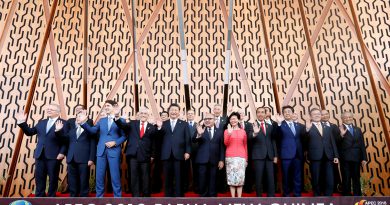Khamenei loyalists may tighten grip at Iran elections
Dubai (Reuters) – Hardliners are set to tighten control of Iran this week in a parliamentary election stacked in their favour, as the leadership closes ranks in a deepening confrontation with Washington.
Big gains by security hawks would confirm the political demise of the country’s pragmatist politicians, weakened by Washington’s decision to quit a 2015 nuclear deal and reimpose sanctions in a move that stifled rapprochement with the West.
More hardliner seats in the Feb. 21 vote may also hand them another prize — more leeway to campaign for the 2021 contest for president, a job with wide day-to-day control of government.
Such wide command of the power apparatus would open an era in which the elite Revolutionary Guards, already omnipresent in the life of the nation, hold ever greater sway in political, social and economic affairs.
Allies of Supreme Leader Ayatollah Ali Khamenei have ensured hardliners dominate the field, removing moderates and leading conservatives and permitting voters a choice mostly between hardline and low-key conservative candidates loyal to him.
“Literally, it is not a race anymore. Hardliners want the presidency. This is the end of moderation for at least a decade if not more,” said an official on condition of anonymity.
Like hardliners, conservatives back the ruling theocracy, but unlike them support more engagement with the outside world.
Faced with little choice, many voters are likely to be focused on bread-and-butter issues, in an economy hurt by U.S. President Donald Trump’s “maximum pressure” policy towards Iran.
With Iran facing growing isolation and threats of conflict over its nuclear standoff with the United States, and growing discontent at home, the turnout is seen as a referendum on the establishment — a potential risk for the authorities.



